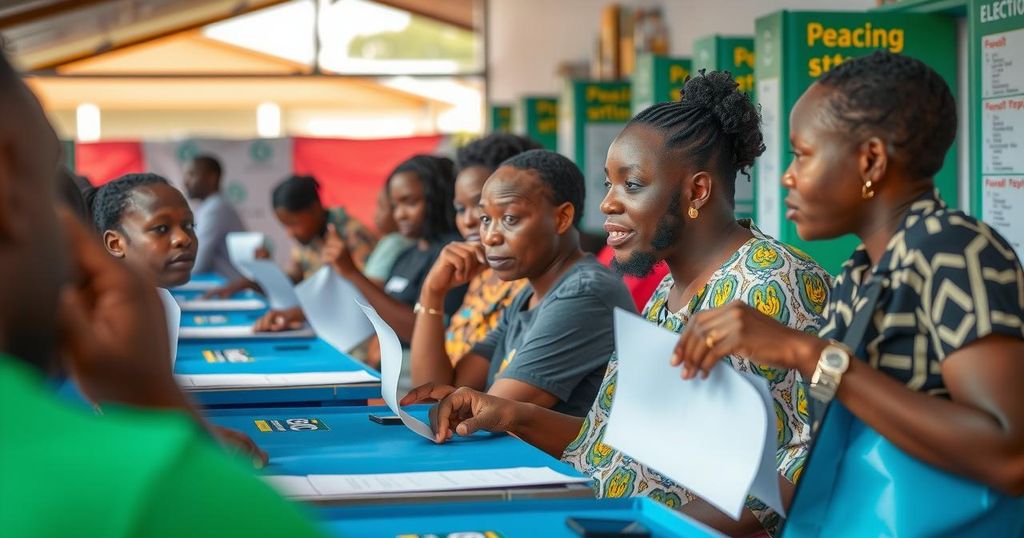Ghana’s Elections: A Struggle for Democracy Amidst Economic Turmoil
Ghana’s elections unfold amid a crippling economic crisis with inflation surging and public discontent rising. Approximately 18.7 million are registered to vote, predominantly viewing the election as a race between Vice President Mahamudu Bawumia and former President John Dramani Mahama. Both candidates promise economic revival, but the electorate exhibits skepticism regarding their capacity to effect real change.
Polls opened for the presidential and legislative elections in Ghana, a nation grappling with a severe economic crisis that many consider the worst in a generation. Approximately 18.7 million Ghanaians are eligible to vote, amid significant discontent regarding the direction of the country. Although 12 candidates are vying for the presidency, the election is largely perceived as a contest between the ruling New Patriotic Party’s (NPP) candidate Vice President Mahamudu Bawumia and former President John Dramani Mahama of the National Democratic Congress (NDC).
Once viewed as a model of democracy in West Africa, Ghana has recently faced mounting challenges, including soaring inflation and high unemployment rates. An opinion poll from Afrobarometer indicated that a staggering 82% of the populace believes the country is heading in the wrong direction. The elections take on added significance in a region experiencing political instability exacerbated by escalating extremist violence.
The economic turmoil in Ghana, marked by a default on foreign debts and rampant inflation peaking at 54% last year, has overshadowed the elections. Key issues include the ramifications of illegal gold mining, which has led to environmental degradation and public discontent. Despite the upbeat atmosphere evident in campaign rallies and celebratory displays, there remains profound concern regarding the effectiveness of the political elite’s proposed solutions to the economic crisis, as both candidates offer little in terms of substantive change.
In their final campaign events, Bawumia promised continuity and stability, citing the need to build upon the current administration’s initiatives. Conversely, Mahama emphasized a bold plan to “reset” the nation, advocating for comprehensive reforms across multiple sectors. Voters are left to wrestle with the disappointing realities of the nation’s economic struggles, raising questions about the potential outcomes of this crucial election.
Ghana, known historically as a stable democracy in West Africa, is facing a significant economic downturn characterized by high inflation, job scarcity, and a public disillusioned with the political landscape. The country has been a beacon of democratic governance, but recent years of economic hardship have undermined this reputation. With presidential elections imminent, the stakes are high for the nation, as the results will reflect public sentiment and trust in democratic processes amidst turbulent conditions. The political dynamics are largely polarized between the two leading parties, the NPP and the NDC, which have been unable to propose differentiated solutions to the crisis at hand.
The elections in Ghana represent a critical juncture for the country, as citizens grapple with economic challenges and political realities. With major candidates failing to offer substantial new ideas, voters must navigate their options in a context marked by frustration and concern. As Ghana approaches polling day, it remains to be seen whether this election will pave the way for meaningful change or further entrench existing political dynamics.
Original Source: www.newsday.com




Post Comment